Form It-40 - Indiana Full-Year Resident Individual Income Tax Booklet - 2012 Page 7
ADVERTISEMENT
Taxpayer Automatic Refund credit, then you should file the simplified
•
The deceased was a nonresident and had gross income from Indi-
Form IT-40EZ. If you are not eligible to file Form IT-40EZ, have any
ana.
add-backs or other deductions or credits, you must file Form IT-40.
Be sure to enter the month and day of death for the taxpayer or spouse
You are a full-year Indiana resident if you maintain your legal resi-
in the appropriate box located on Schedule 7. For example, a date of
dence in Indiana from Jan. 1 – Dec. 31 of the tax year. You do not have
death of Jan. 9, 2012, would be entered as 01/09/2012. Note. The date
to be physically present in Indiana the entire year to be considered a
of death should not be entered here if the individual died after Dec. 31,
full-year resident. Residents, including military personnel, who leave
2012, but before filing the tax return. The date of death information
Indiana for a temporary stay, are considered residents during their
will be shown on the individual’s 2013 tax return.
absence.
Signing the deceased individual’s tax return
Retired persons spending the winter months in another state may still
If a joint return is filed by the surviving spouse, the surviving spouse
be full-year residents if:
should sign his or her own name and after the signature write: “Filing
•
They maintain their legal residence in Indiana and intend to re-
as Surviving Spouse. ”
turn to Indiana during part of the taxable year,
•
They retain their Indiana driver’s license,
An executor or administrator appointed to the deceased’s estate must
•
They retain their Indiana voting rights, and/or
file and sign the return (even if this isn’t the final return), indicating
•
They claim a homestead deduction on their Indiana home for
their relationship after their signature (e.g. administrator).
property tax purposes.
If there is no executor, or if an administrator has not been appointed,
Indiana allows $1,000 for each exemption claimed on your federal
the person filing the return should sign and give their relationship to
return, plus an additional $1,500 for certain dependent children (see
the deceased (e.g. “John Doe, nephew”). Only one tax return should be
instructions on page 26 for more information). If you did not have to
filed on behalf of the deceased.
file a federal return, you should complete a “sample” federal return to
see how many exemptions you are eligible to claim.
Note. The Department may ask for a copy of the death certificate, so
please keep a copy with your records.
If your gross income is less than your total exemptions, you are not
required to file. However, you may want to file a return to get a refund
A refund check for a deceased individual
of any state and/or county tax withheld by your employer, or other
If you (the surviving spouse, administrator, executor or other) have
refundable credits, such as an earned income credit.
received a refund check and cannot cash it, contact the Department to
get a widow’s affidavit (POA-30) or a distributee’s affidavit (POA-20)
Part-year residents and full-year nonresidents
at Send the completed affidavit, the refund
If you were a part-year resident and received income while you lived
check and a copy of the death certificate to the State Auditor’s Office so
in Indiana, you must file Indiana Form IT-40PNR, Part-Year Resident
a refund check can be issued to you.
or Nonresident Individual Income Tax Return.
Military personnel — residency
If you were a legal resident of another state (exception: see next para-
If you were an Indiana resident when you enlisted, you remain an
graph) and had income from Indiana (except certain interest, divi-
Indiana resident no matter where you are stationed. You must report
dends, or retirement income), you must file Form IT-40PNR.
all your income to Indiana on Form IT-40.
Full-year residents of Kentucky, Michigan, Ohio,
If you changed your legal residence (military home of record) during
Pennsylvania or Wisconsin
2012, you are a part-year resident and should file Form IT-40PNR.
If you were a full-year resident of Kentucky, Michigan, Ohio, Penn-
You must also enclose a copy of Military Form DD-2058 with the
sylvania or Wisconsin, and your only income from Indiana was from
tax return. As an Indiana part-year resident you will be taxed on the
wages, salaries, tips or commissions, then you need to file Form
income you earned while you were a resident of Indiana, plus any
IT-40RNR, Indiana Reciprocal Nonresident Individual Income Tax
income from Indiana sources.
Return.
If you are stationed in Indiana and you are a resident of another state,
Deceased taxpayers
you won’t need to file with Indiana unless you have non-military
income from Indiana sources.
If an individual died during 2012, or died after Dec. 31, 2012, but be-
fore filing his/her tax return, the executor, administrator or surviving
Example. Annie, who is a Kansas resident, is stationed in Indiana. She
spouse must file a tax return for the individual if:
earned $1,300 from her Indiana part-time job. She’ll need to report
•
The deceased was under the age of 65 and had gross income over
that income to Indiana on Form IT-40PNR.
$1,000,
•
The deceased was age 65 or older and had gross income over
$2,000, or
Page 7
IT-40 Booklet 2012
ADVERTISEMENT
0 votes
Related Articles
Related forms
Related Categories
Parent category: Financial
 1
1 2
2 3
3 4
4 5
5 6
6 7
7 8
8 9
9 10
10 11
11 12
12 13
13 14
14 15
15 16
16 17
17 18
18 19
19 20
20 21
21 22
22 23
23 24
24 25
25 26
26 27
27 28
28 29
29 30
30 31
31 32
32 33
33 34
34 35
35 36
36 37
37 38
38 39
39 40
40 41
41 42
42 43
43 44
44 45
45 46
46 47
47 48
48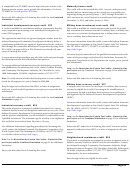 49
49 50
50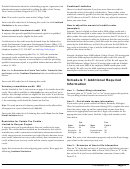 51
51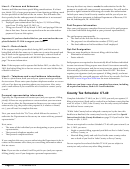 52
52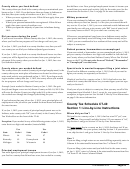 53
53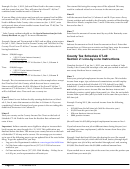 54
54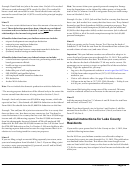 55
55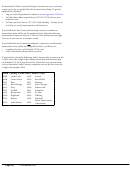 56
56 57
57 58
58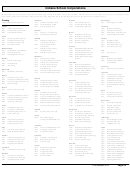 59
59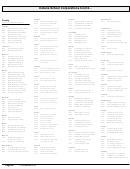 60
60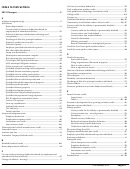 61
61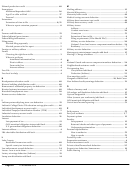 62
62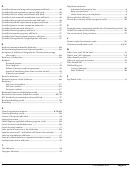 63
63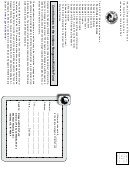 64
64








